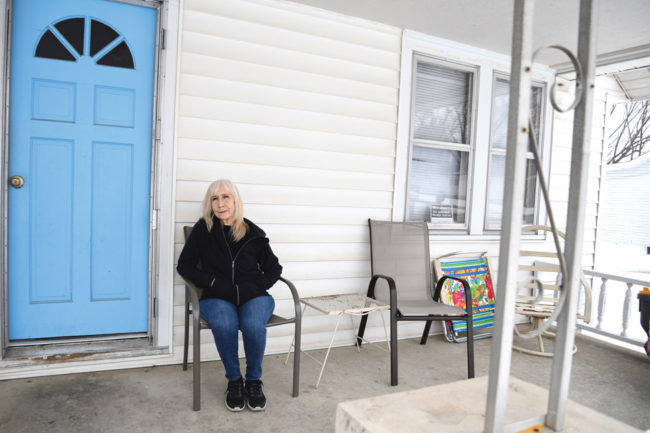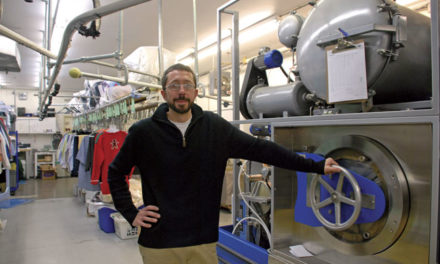
by NICOLE MCPHEETERS
In 2016, housing for those recovering from substance use disorder was limited in Bloomington. Landlords mainly catered to students, resulting in rental prices that were too high for many people in recovery. Criminal history or bad credit made the housing search more difficult.
To fill the gap in Bloomington’s transitional housing, Marilyn Grimes-Burrus used her personal experience with addiction and her degree in social work to found Courage to Change Sober Living (CTC), a 12-step, nonprofit, sober living environment.
“We started with a one-bedroom, which held two women,” says Grimes-Burrus. “We’re now going on five years, have four houses located on the bus line, and hold 14 men and 10 women.”
CTC’s goal is structured sobriety. Residents commit to a minimum of 90 days, attend three 12-step meetings per week, take frequent drug tests, seek employment, and pay monthly fees. Curfews help uphold a lifestyle that enforces routine.
“It’s about learning how to live a structured life,” Grimes-Burrus says. “Keeping a schedule, doing chores, and learning to manage finances where others are working on the same goals.”
CTC’s case managers, who are also in recovery, set them apart from other communities. Stacy Flynn, who had lived with CTC after being incarcerated, was hired as a case manager in 2019.
“I’m grateful to give back to the program that gave me a new way of life,” says Flynn. “The correct balance of freedom and structure allowed me to work without complete confinement and build my own program of recovery.”
Flynn was also motivated by the support and accountability of her housemates, and says they helped her learn to enjoy sobriety. “We would have pizza and movie nights, attend meditation at the Buddhist Cultural Center, hike, and attend meetings,” she says. Grimes-Burrus adds that clients are urged to spend time together to discourage isolation, which can cause relapse.
In the short term, Grimes-Burrus hopes to include a recovery home specific to those who are prescribed methadone or suboxone, which are used to treat opioid addiction. She has found that clients who are abstinent cannot live with those who are medically assisted due to temptation.
She says an apartment complex has “always been the long-term goal.”
Visit couragetochangehouse.org for more information.











